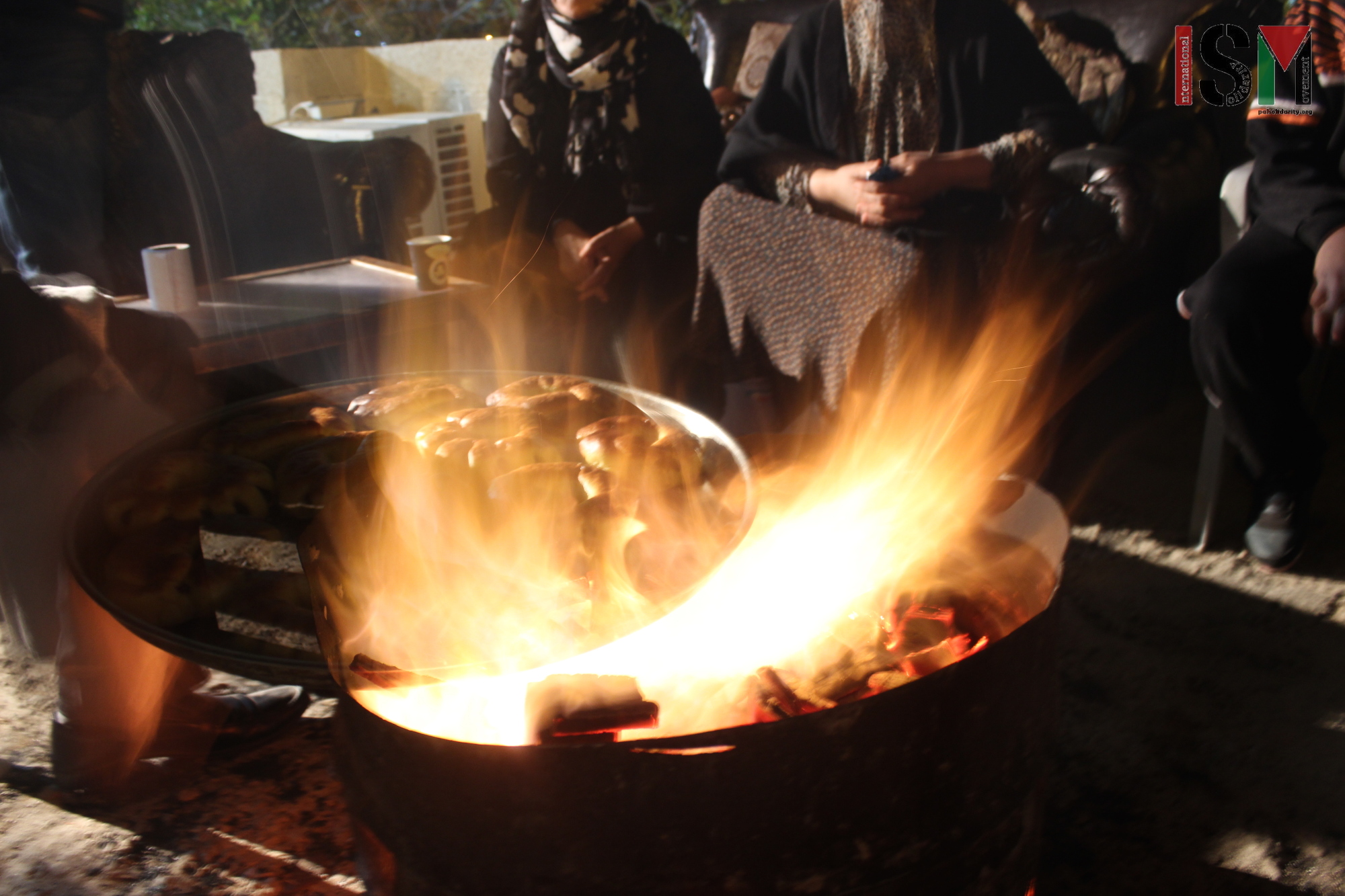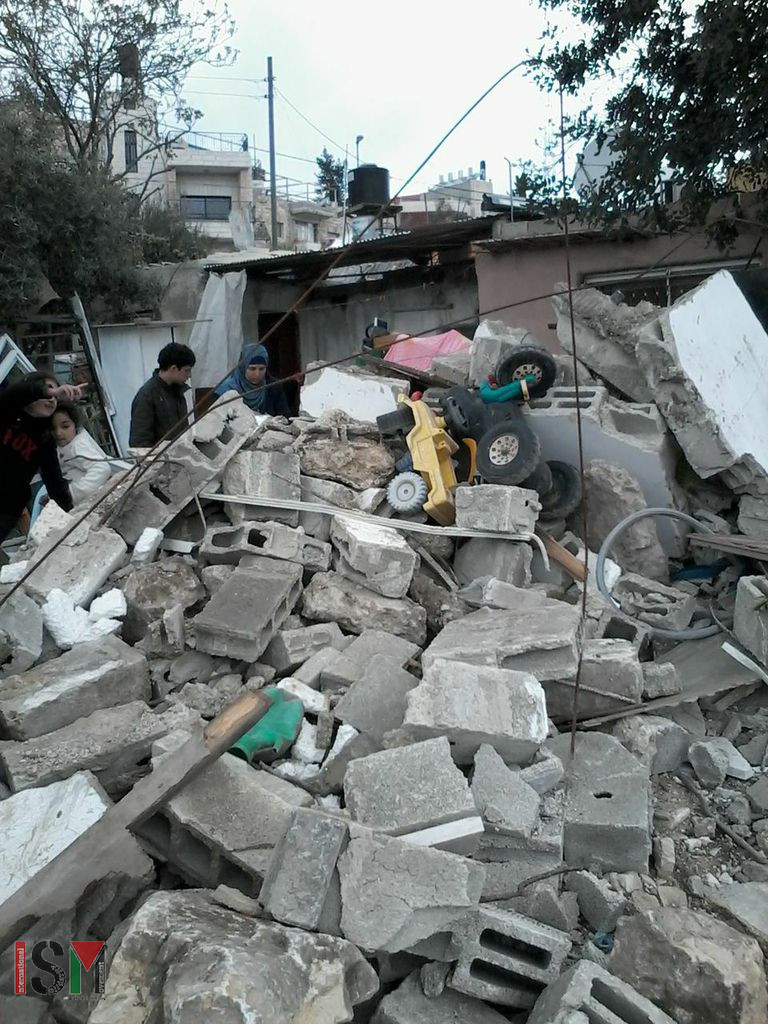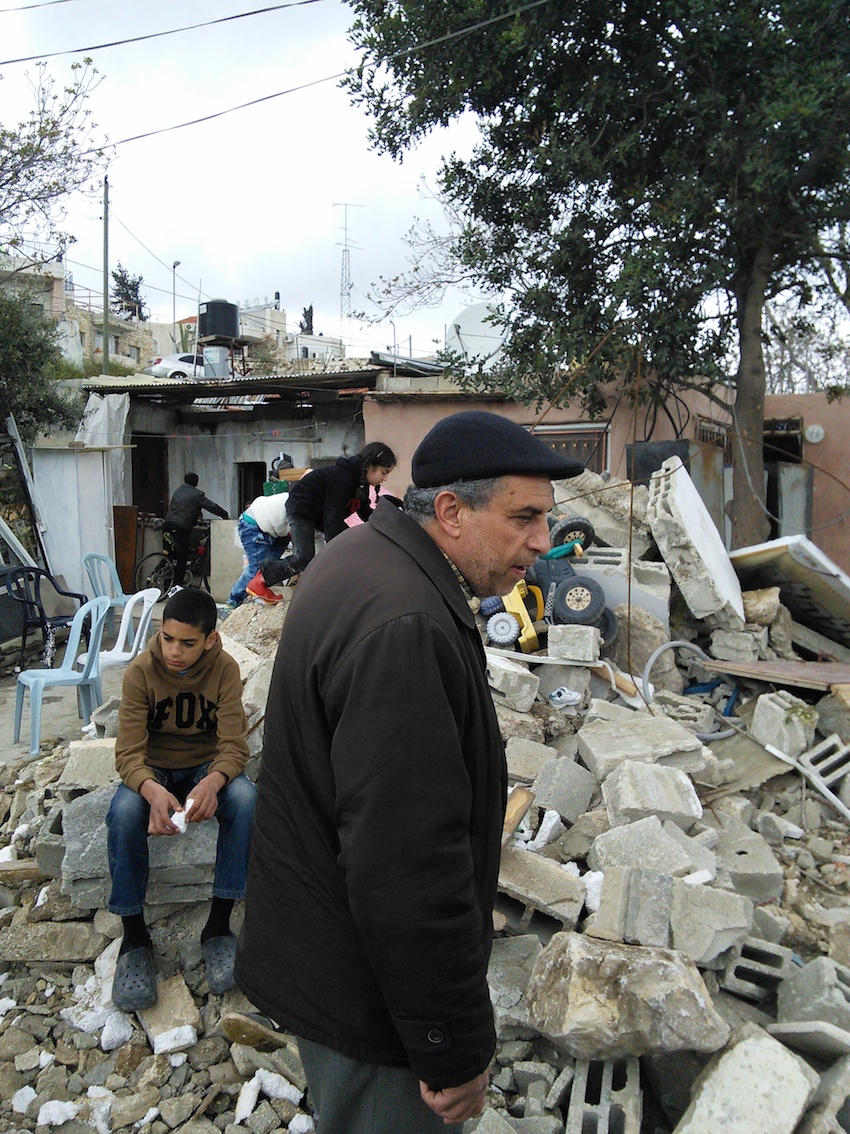Tag: House Demolition
-

Journal: House demolition in East Jerusalem
27th April 2015 | International Solidarity Movement, Team Al Khalil | East Jerusalem, Occupied Palestine This has been hard to write down. The three of us put off again and again the thoughts and fears of that day, to remember them and to finally write them down. We have been avoiding it, because it is easier to…
-

House-demolition scheduled for Wadi al-Joz – Families call for support
18th April 2015 | International Solidarity Movement, Team Al Khalil | East Jerusalem, Occupied Palestine The Amro and Tohta families in the occupied East Jerusalem Wadi al-Joz neighbourhood are calling for international presence on Sunday, April 19. The Tohta family received a demolition-order for their house and were warned that the demolition will take place on…
-

Home demolition in Jerusalem: “They want our land. We need help to protect it.”
1st April 2015 | Jerusalem, Occupied Palestine Nureddin Amro and his brother Sharif Amro and their families were awakened at 5:30 am by over a hundred Israeli soldiers who came to demolish their home in the Wadi Al-Joz neighborhood of occupied East Jerusalem on Tuesday, March 31, 2015. Both men are blind. The brothers live with their…
